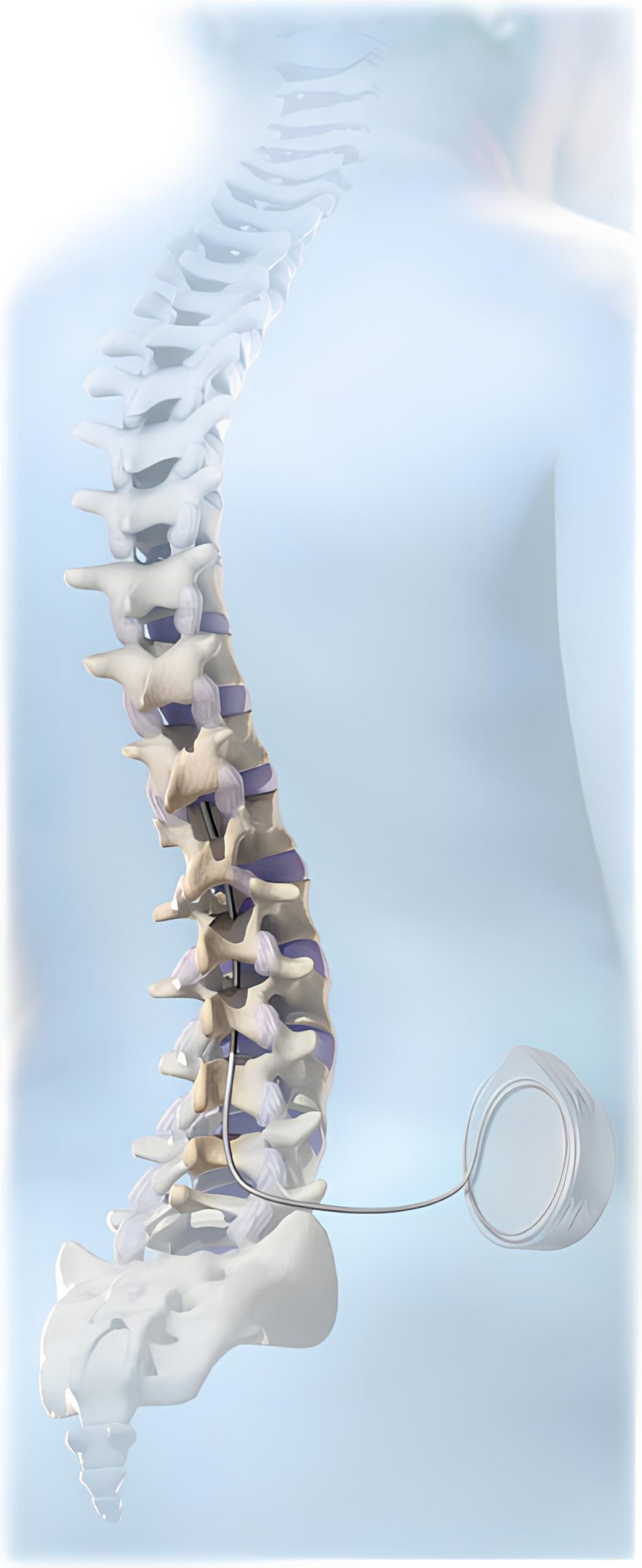Baclofen Pump Therapy for Dystonia / Spasticity
What is Baclofen Pump Therapy?
Baclofen pump therapy involves the implantation of a programmable pump and catheter system, which delivers a continuous infusion of baclofen—a muscle relaxant—directly into the spinal fluid. By bypassing the digestive system, this approach allows for precise dosing and enhanced therapeutic effects, particularly beneficial for individuals with severe or refractory dystonia or spasticity.
How Does Baclofen Pump Therapy Work?
The pump is surgically placed under the skin of the abdomen or buttock, while the catheter is inserted into the spinal fluid surrounding the spinal cord. The pump is programmed to deliver a precise dosage of baclofen continuously, allowing for consistent relief from muscle stiffness and spasms.
Services
Discover personalized and advanced treatment options under the expert care of Dr. Jaslovleen Sidhu, a renowned neurologist specializing in movement disorders.
Having a query?
Whether you seek insights into a specific medical condition, guidance on preventive care, or simply wish to optimize your well-being.

Benefits of Baclofen Pump Therapy for Dystonia and Spasticity
Baclofen pump therapy offers several significant benefits for individuals suffering from dystonia and spasticity, providing targeted relief and enhancing overall quality of life. As a leading neurologist specializing in movement disorders, Dr. Jaslovleen Sidhu is dedicated to helping patients understand the advantages of this innovative treatment option. Here are the key benefits of baclofen pump therapy:
Targeted Relief: Baclofen pump therapy delivers medication directly into the spinal fluid, precisely targeting the nerve cells responsible for muscle stiffness and spasms. This targeted approach allows for more effective relief compared to oral medications, which must pass through the digestive system.
Minimized Side Effects: By bypassing the digestive system, baclofen pump therapy reduces the risk of systemic side effects commonly associated with oral baclofen, such as drowsiness or dizziness. This can significantly improve patient tolerance and adherence to treatment.
Customized Dosage: The dosage and infusion rate of baclofen can be adjusted and personalized according to each patient’s specific needs. This customization ensures optimal therapeutic outcomes and allows for fine-tuning of the treatment regimen over time.
Improved Functionality: With optimized muscle tone and reduced spasticity, individuals undergoing pump therapy often experience improvements in mobility, range of motion, and overall functional abilities. This can lead to enhanced independence and quality of life.
Long-Term Management: Baclofen pump therapy offers long-term management of dystonia and spasticity, providing sustained relief from symptoms without the need for frequent adjustments or dose escalation. This stability can help individuals better manage their condition and plan for the future.
Reduced Caregiver Burden: By effectively controlling symptoms, baclofen pump therapy can reduce the burden on caregivers and family members who may be assisting with daily activities and support. This can improve relationships and promote a more balanced caregiving dynamic.
Enhanced Quality of Life: Ultimately, the goal of baclofen pump therapy is to enhance the overall quality of life for individuals living with dystonia and spasticity. By providing targeted relief, minimizing side effects, and improving functionality, this treatment option can help patients regain independence and enjoy a higher level of well-being.
Is Baclofen Pump Therapy Right for You?
Determining whether baclofen pump therapy is the right treatment option for you requires a thorough evaluation by a neurologist specializing in movement disorders, such as Dr. Jaslovleen Sidhu. Several factors are considered to determine if you are a suitable candidate for this treatment. Here are some considerations:
‣ Severity of Symptoms: Baclofen pump therapy is typically recommended for individuals with severe or refractory dystonia or spasticity that has not responded adequately to other treatment modalities, such as oral medications or physical therapy. If your symptoms significantly impair your daily functioning and quality of life, pump therapy may be a viable option.
‣ Response to Previous Treatments: Your neurologist will assess your response to previous treatments, including oral medications and other therapies. If you have not achieved satisfactory symptom control with these interventions, baclofen pump therapy may offer a more effective alternative.
‣ Medical History: Your medical history, including any underlying health conditions or previous surgeries, will be evaluated to ensure that you are a suitable candidate for surgery and implantation of the pump system.
‣ Ability to Tolerate Baclofen: Some individuals may experience intolerable side effects from oral baclofen, such as drowsiness or dizziness. Pump therapy delivers medication directly into the spinal fluid, minimizing systemic side effects and improving tolerability for some patients.
‣ Expectations and Goals: Your neurologist will discuss your treatment goals and expectations to ensure that they align with the potential benefits of baclofen pump therapy. This includes discussing the anticipated outcomes, potential risks, and lifestyle adjustments associated with this treatment option.
‣ Commitment to Long-Term Management: Baclofen pump therapy requires ongoing management, including regular follow-up appointments for pump adjustments and refills. It is essential to be committed to adhering to the recommended treatment regimen and attending scheduled appointments for optimal outcomes.
During your consultation with Dr. Jaslovleen Sidhu, she will conduct a comprehensive evaluation of your condition and medical history to determine if baclofen pump therapy is appropriate for you. If you are deemed a suitable candidate, Dr. Sidhu will provide personalized recommendations and guide you through the treatment process, ensuring that you receive the care and support you need to achieve optimal symptom management and improved quality of life.



